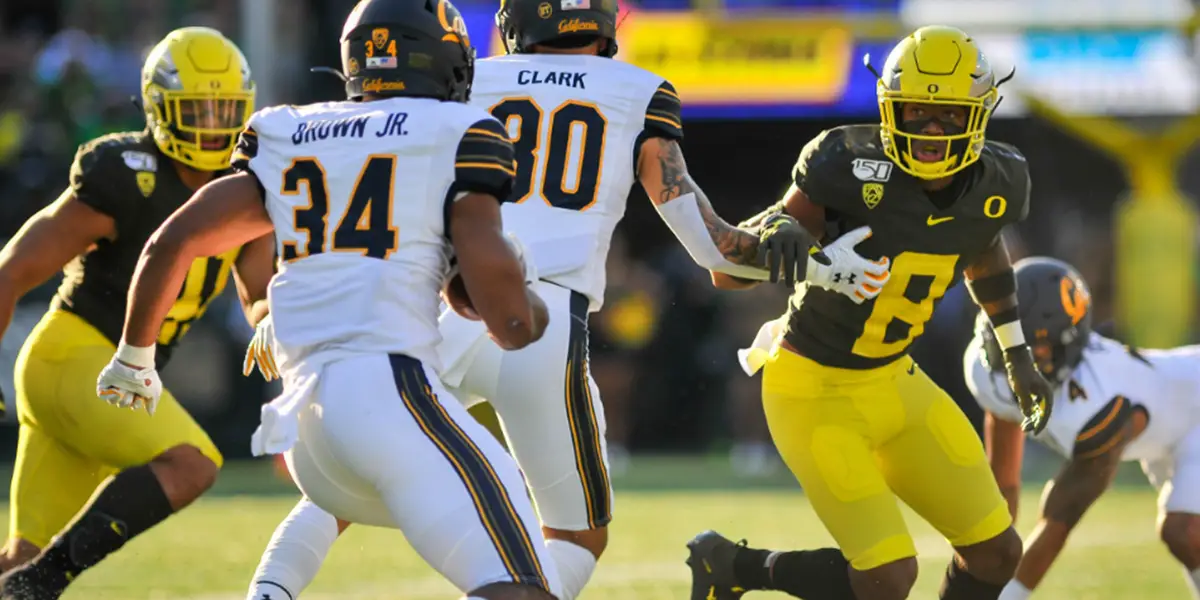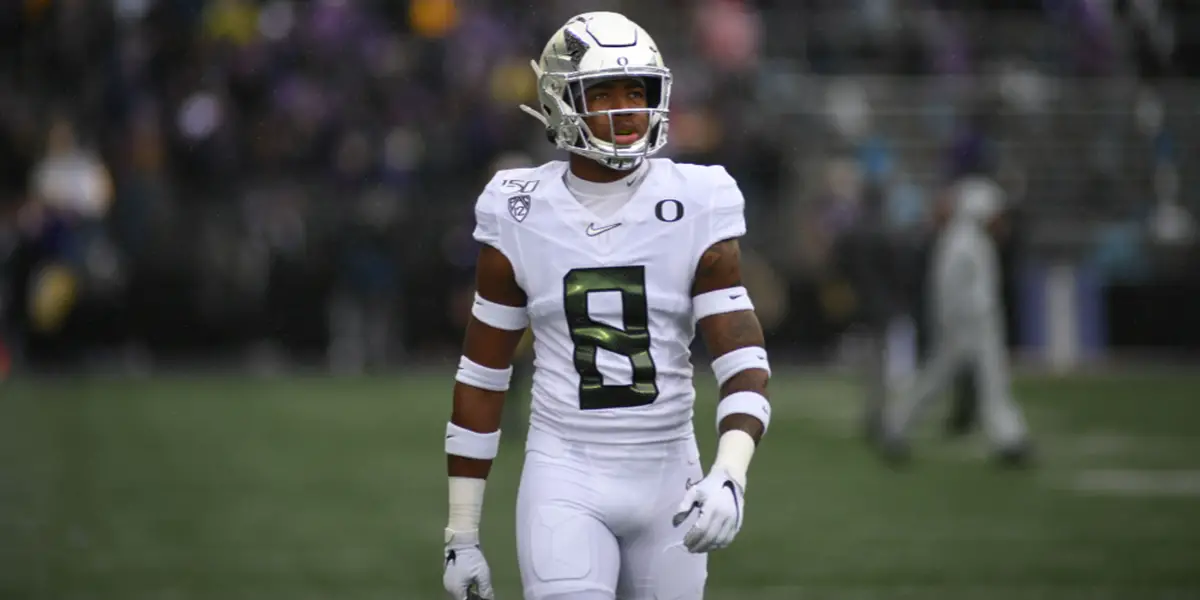Few things have impacted the game of football like the spread offense. The revolutionary concept of spreading the field to dictate the box count and to get athletes in space wasn’t widely accepted by the football community at first. But now, it’s the base offensive system for nearly every team at every level.
With offenses rarely employing multiple running backs or tight ends these days, defenses have had to make adjustments to keep pace. Traditional 3-4 and 4-3 defenses were once the standard in football, but playing seven big-bodied defenders against modern-day spread offenses is a recipe for disaster. So, defenses now use a nickelback or slot cornerback in place of a traditional front-seven defender in order to counteract the speed and athleticism of opposing offenses.
The nickelback position itself has been around for a while, but it has only recently become a starting position, and that’s largely because it requires a highly specialized skill set. It’s hard to find players who can erase receivers in one-on-one coverage, make plays on the ball at the catch point, and hold the edge in run support. Luckily for the Oregon Ducks, they have a player on their roster who might just be the prototype for the ever-important position: Jevon Holland.
Why Jevon Holland Is the Quintessential Nickelback
In today’s game, the most valuable tool a defense can have in its arsenal is a defender who can hold his own in one-on-one coverage. With enough coverage specialists in the back end, defensive coordinators have the freedom to load the box to stop the run and to bring pressure on opposing quarterbacks since their secondary is capable of covering receivers without any assistance.

Holland is the best nickelback in college football.
Most recognize that the ability to cover receivers one-on-one is paramount for outside cornerbacks, but it’s just as important for slot cornerbacks, too. Because of the prevalence of the spread, offenses line up with at least three wide receivers the vast majority of the time, meaning the slot cornerback is going to be lined up over a receiver more often than not, just like an outside cornerback. What’s more, offenses often put their best route runner, and often their best receiver in general, in the slot, in order to take advantage of defenses that don’t have premier coverage players at nickelback. Simply put, if a defense doesn’t have a shutdown slot cornerback these days, the opposing offense will have a field day.
Luckily for the Ducks, Holland is the definition of a shutdown slot cornerback. He has the best slot coverage grade in all of college football over the past two years, according to Pro Football Focus, essentially erasing every receiver who lines up across from him. Holland generally wins in coverage with a combination of top-notch instincts and good burst and athleticism. There’s an example of this in the video below (at the 6:42 mark).
In the video above, Holland (No. 8, circled) is patient enough to stay on top of the slot receiver and not bite on his quick fake to the inside. He maintains outside positioning knowing that he has safety help inside, and then when the receiver finally makes his break outside, Holland explodes out of his break to completely match the receiver’s stride, and he stays on top of the receiver, forcing him towards the sideline.
With a great understanding of how to play slot receivers one-on-one, Holland doesn’t cede many catches. But to be the prototype for the position, it’s not enough to just play good coverage. The best defensive backs also consistently make plays on the ball, which lead to turnovers and get the opposing offense off the field quickly.
Nickelbacks are often exploited because many of them don’t have the ball skills of an outside cornerback, even if they’re able to stay in phase with receivers in coverage. Holland, however, not only has elite ball skills for a slot cornerback, but he arguably has the best ball skills of any defender in the entire country.
Holland has led the Ducks in interceptions in both of his collegiate seasons, including snagging a whopping five in his true freshman season — a season in which he wasn’t even a full-time starter. He has a natural feel for playing the ball in the air, and opposing quarterbacks who test him in jump-ball or downfield situations usually regret it. In the video below (at the 4:03 mark), Holland shows off his playmaking ability.
In the video above, Auburn is running a smash concept, isolating Holland (No. 8, circled above) on the slot receiver, who is running a fade — a play that is commonly used to exploit slot cornerbacks’ or safeties’ inability to locate the ball and make a play on it. The quarterback tries to make a back-shoulder throw, and he’s hoping that Holland will keep his back turned to the ball, facing the receiver, resulting in an incompletion at worst and a reception or a defensive pass interference penalty at best.
Most slot cornerbacks likely would play the receiver rather than the ball in this situation, because misplaying the ball in the air could result in a touchdown for the opposing offense. But Holland isn’t most slot cornerbacks. He effortlessly transitions from defender to receiver, turning his head around and flipping his hips, quickly locating the ball in the air, and easily snagging a huge interception for the Ducks.
Holland is the total package in coverage, but he’s no slouch in run defense, either. Perhaps the biggest reason the nickelback position is so hard to play is because players need to have the ball skills and coverage ability of an outside cornerback while also serving as an extra box defender against the run.
Holland is a willing run defender who has no problem throwing his body around and setting the edge. He finished second in tackles for the Ducks in 2019, showing just how active he was in run defense throughout the season. The video below (at the 2:26 mark) shows just how versatile Holland is.
In the video above, Holland (No. 8, circled) lines up as an edge defender — quite the change of pace from his usual downfield coverage assignments. As the play develops, it’s apparent that the play is a run, and Holland is the “force” defender on the playside. His job is to set a hard edge and force the play back inside to the “spill” players. (This is a strategy that Oregon has employed for quite some time to stop the run, and it has been covered in detail here at FishDuck.com.)
Not many cornerbacks are willing or able to challenge a pulling lineman head on in order to set the edge, but that’s exactly what Holland does, and he wisely out-maneuvers, rather than out-muscles, the pulling tackle in order to force the runner inside and shut down the play.
Jevon Holland is the embodiment of a “do-it-all” player at a position that is pretty much responsible for doing everything. The nickelback has become one of the most important positions on the field due to the increase of spread formations. It’s hard to have a shutdown defense without a slot cornerback who can make plays in coverage, blanket opposing receivers and be an extra linebacker in the running game.
Holland does all of the above at a high level and is the shining example of how to play the nickelback position. Every other player at the position should spend their offseasons watching No. 8’s tape and taking notes.
Joshua Whitted
Morgantown, West VirginiaTop Photo by Truong Nguyen
Joshua is an adopted Duck fanatic, originally hailing from southwestern Pennsylvania. His love for the University of Oregon began as a young child when he became mesmerized by the flashy uniforms and explosive offenses of the Chip Kelly era, and now, he follows the team religiously. His fondest memory of the team is seeing De’Anthony Thomas race past Wisconsin defenders back in the 2012 Rose Bowl. A true football enthusiast, Joshua loves studying the intricacies of the game, and he aspires to become a professional sports journalist. Joshua now resides in Morgantown, West Virginia where he works in customer service. When he’s not watching Oregon replays, Joshua loves reading, writing, and spending time with his family. Contact: whittedjd@gmail.com


